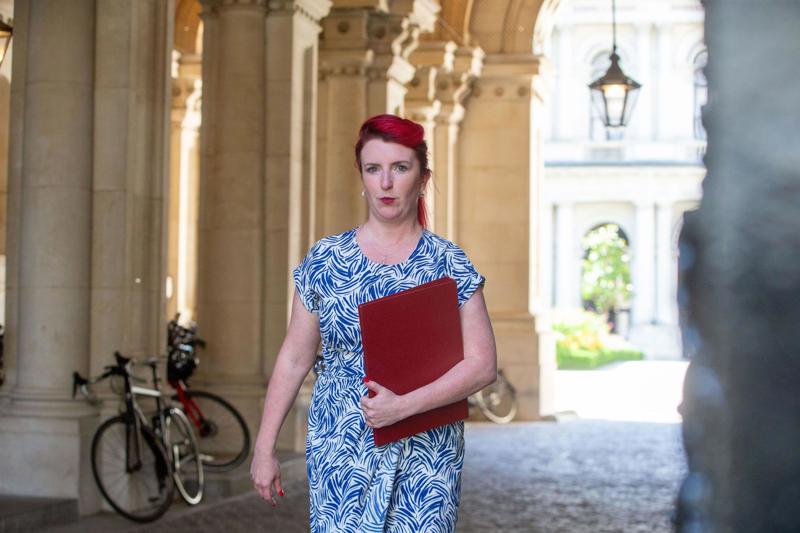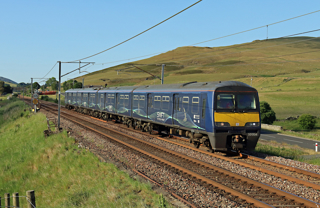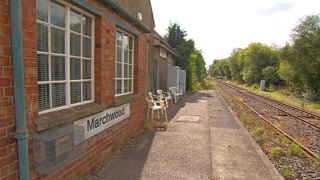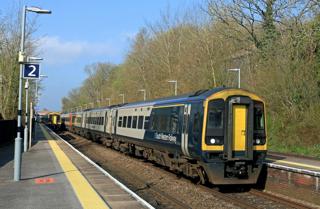
The government's bill to bring passenger train services under public control has been passed by Parliament. The final version of the Passenger Railway Services (Public Ownership) Bill was approved by MPs on Wednesday evening.

The government's bill to bring passenger train services under public control has been passed by Parliament. The final version of the Passenger Railway Services (Public Ownership) Bill was approved by MPs on Wednesday evening.
Posting on X, Transport Secretary Haigh said: "The Rail Public Ownership Bill has been passed by Parliament! This landmark Bill is the first major step towards publicly owned Great British Railways, which will put passengers first and drive up standards."
A Department for Transport spokesman added: "Following Royal Assent, the Bill will allow the government to start the process of bringing train services back into public hands, so that we can ensure our rail network serves the people who rely on it every day."
The Bill only now needs Royal Assent before becoming an Act of Parliament, though there is no set time period for that to happen.
The passing of the bill came a day after Haigh rejected a suggestion to take control of train operating companies in order of performance. The House of Lords had suggested the amendment to Labour’s Bill before approving it and returning it to the House of Commons last week.
Lords had made the recommendation when debating the bill which will bring control of the ten privately-run passenger operations under control of the Department for Transport’s OLR Holdings Limited (DOHL) within the next three years.
The amendment said the Transport Secretary “must assess and rank existing franchise agreements according to performance criteria established after consultation with relevant stakeholders”.
After that, a private operator’s contract must only be terminated in accordance with a break clause if “there are no other franchise agreements which are performing worse” and if the Transport Secretary is “satisfied that provision of the services by a public sector company will improve existing service provision”.
Speaking in the House of Commons on Tuesday, Gareth Bacon, the Conservative’s Shadow Transport Secretary, said the amendment would “clearly be in the best interest of passengers”, adding that it would “put passengers at the heart of the decision making”.
However, Haigh rejected this, saying the amendment would delay transferring train operations to the public sector at an “additional cost to the taxpayer”.
The Lords also suggested writing a clause into the Bill stating that part of its purpose would be the “improvement of passenger railway services”, and another for the “application of public sector equality duty”, which would ensure publicly operated services meet the needs of disabled people.
Haigh dismissed the first of those as ‘unnecessary, misleading and potentially harmful’, saying that it “because it picks out improving the performance of passenger rail services as the sole purpose of the Bill”.
She told MPs: “If that was really its sole purpose, the best thing we could do would be to cut train services from the timetable; the easiest way to make trains run on time is to run fewer of them. I hope that hon. Members on all sides of the House can agree that that would be absurd.
However, she did accept the equality amendment, saying it “sends a very clear message by making it explicit in the Equality Act 2010 that publicly owned train operators are subject to the public sector equality duty”.
Haigh also reiterated comments made in the House of Lords by Rail Minister Lord Peter Hendy, to work with representatives of disabled passengers to develop and accessibility road map that will explain the actions planned by the government to improve experiences for disabled people or others requiring assistance, and how the government will fund the next phase of improvements to the passenger assist app.
The first and second amendments were rejected, with the third agreed to by MPs.
Last week, Haigh told members of the Transport Select Committee that the first operators being taken over by DOHL will be known when the Bill receives Royal Assent, with all ten due to be taken over by late 2027.
Login to continue reading
Or register with RAIL to keep up-to-date with the latest news, insight and opinion.


















Login to comment
Comments
No comments have been made yet.